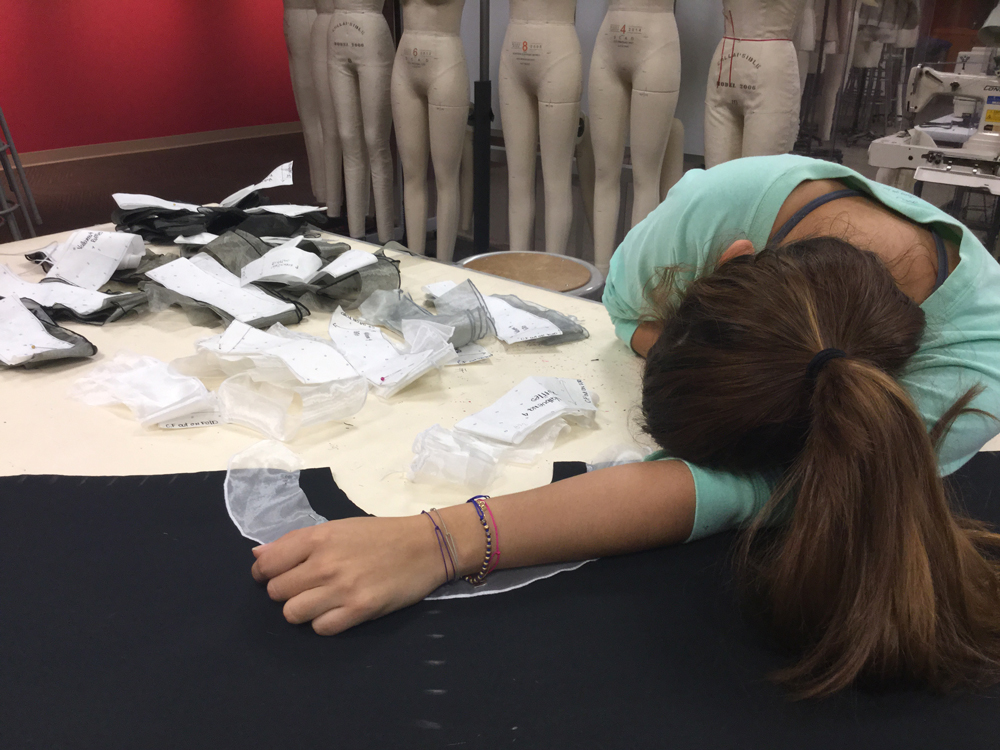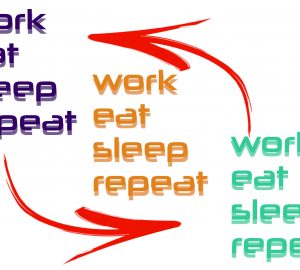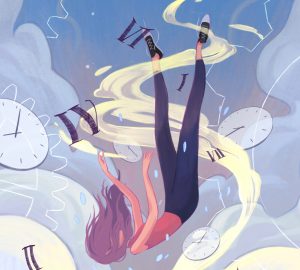
by Ananya Vahal
SCAD in reality stands for The Savannah College of Art and Design, but the letters have become an acronym for the unofficial school motto, “sleep comes after death.” Many SCAD students say they rely on all-nighters and continuous lack of sleep to get their assignments in on time but is sleep deprivation the best path to achieving excellence?
Professor Doug Dabbs from the sequential art department, who was once a graduate student at SCAD, thinks that there is a positive intention behind the motto “sleep comes after death,” however, he says in practice it is not an effective way for students to succeed. Dabbs said “I understand the beginning of it. It’s a sense of morale and camaraderie like ‘yeah I did an all-nighter too!’ but it’s not something you want to create a habit of.” Professor Jackie Lewis from the sequential art department, who was also a graduate student at SCAD, said in her department she has “seen students who stay up all night a lot and it seriously affects their health. I’ve been that student in the past.”
Pulling consecutive all-nighters can affect your health negatively. Psychology professor Trina Brown offers a psychological perspective on sleep deprivation: “We understand specifically that not only are there physical health concerns with [lack of sleep], there are some serious mental health concerns with [lack of sleep].” She frequently urges her students to get more sleep or else face the consequences, “One of the quotes [from the Introduction to Psychology textbook] I really like that gets the students’ attention is that ‘sleep deprivation makes you ugly, stupid, and fat.’ Who wants to be those things?”
Professor Rosemary Erpf from the art history department points out that student performance is increased when they get enough sleep: “I encourage people to get some sleep because actually they function better. I know, I didn’t believe that either when I was your age.” Professor Catherine Ramsdell from the writing department agrees: “I think it is hard to be creative when you are really tired.” Professor Brown says she believes that “typically students realize that they produce something that they’re not really proud of and it’s just a matter of getting it done but then the quality is compromised.” When students get enough sleep, they are able to focus better in class, as well. In fact Professor Erpf says she is so aware of her sleep-deprived students that she makes it a personal mission to help them stay awake in her classroom: “This relates very strongly to art history classes because the room is dark. I’m told I have a soft voice which could put someone to sleep. I try to liven it up with jokes and stories.”
Professor Dabbs also says that pulling all-nighters and staying on campus all day and night can actually distract students from getting their work done: “When you tend not to sleep and when you stay in the same location a lot, you don’t associate that environment for working anymore and it kind of becomes your living situation.” He argues that students approach their assignments in a less professional way when they are in the studio day and night because they are treating it like their own personal space. On the other hand, Professor Dabbs understands that some students feel most creative at night and that is OK as long as they are getting enough sleep and organizing their time effectively: “I think there is a difference between some people who work all through the night and that’s when they feel the most creative. Because you can still do that as long as you have a structure and a plan and you’re still getting the correct amount of sleep.”
SCAD professors from all different departments agree that sleep deprivation is not essential to student success and in fact may be hindering students from obtaining their full potential. As a student, it is crucial for me to get enough sleep in order to produce quality work; however, occasionally there are times when an all-nighter is necessary to get assignments completed on time. As long as the all-nighters don’t become a regular occurrence, they are acceptable. Some students work best at night and that is fine as long as they are getting enough sleep and organizing their time. Erpf offers a suggestion in addition to the nap pods at The Hub, “Maybe we should get a little nap area where we could have cots. We need a real bed and someone to tuck you in.”























